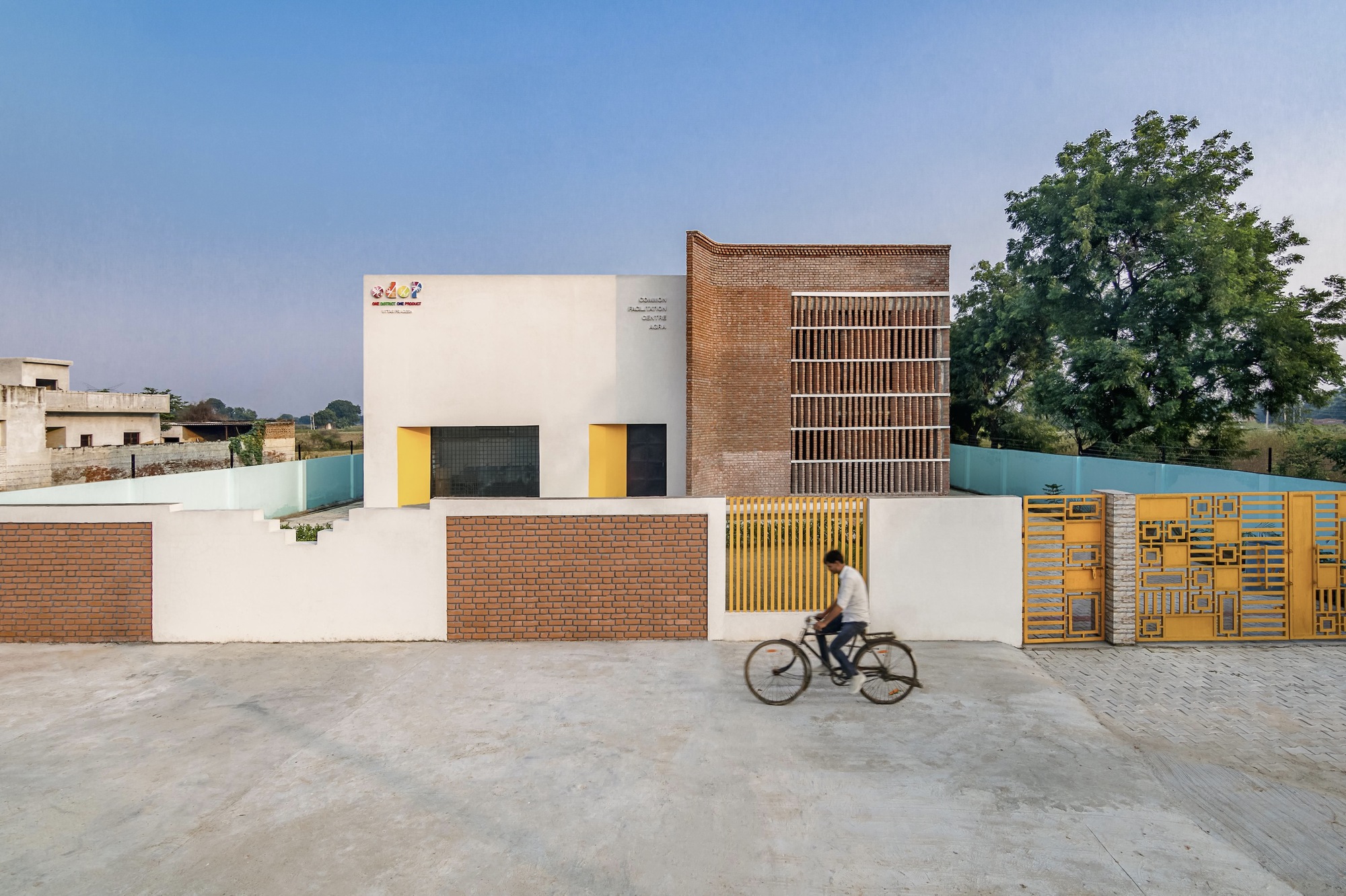An Overview
Estate Nirman Nigam (ENN), an organization typically involved in urban planning, development, and management of estates or properties, aims to facilitate the smooth functioning of real estate projects and provide services to the general public. One of the critical initiatives in this framework is the Facilitation Center. This center plays a pivotal role in bridging the gap between the citizens, the developers, and the various authorities involved in urban development projects.
The Facilitation Center at Estate Nirman Nigam is designed to offer a seamless and customer-oriented experience for individuals, businesses, and developers who require assistance with property-related concerns, ranging from documentation to project approval and more. In this article, we will explore the role, functions, objectives, and significance of the Facilitation Center in detail.

1. Objective of the Facilitation Center
The core objective of the Facilitation Center is to simplify the processes involved in property transactions, development approvals, and related services. Its goal is to make the entire experience more transparent, accessible, and efficient for the public. This is achieved through a user-friendly interface, providing a single point of contact for various services related to urban development.
Key Functions:
-
Streamline Documentation: One of the primary objectives is to simplify the paperwork associated with real estate transactions and approvals. The Facilitation Center helps citizens understand the documentation required, guiding them through the application processes.
-
Provide Information: It serves as a one-stop center for information about ongoing projects, schemes, and regulations. Residents and developers can access details about zoning, land use, and legal requirements for building or purchasing property.
-
Issue Approvals: The Facilitation Center is responsible for coordinating with various government departments to ensure that the necessary approvals are issued promptly. Whether it's for construction permits, land title certificates, or completion certificates, the center handles the processing and follow-ups.
-
Resolve Complaints: If there are issues with development projects, delayed services, or grievances from residents, the Facilitation Center provides a platform to lodge complaints. It works with the relevant authorities to address and resolve issues swiftly.

2. Services Offered by the Facilitation Center
The Facilitation Center serves as a hub for numerous services that make urban development and property transactions smoother. Some of the services provided include:
a. Project Information and Consultation
The center offers detailed information regarding upcoming real estate projects, including residential, commercial, and mixed-use developments. It educates potential buyers and investors about the project’s status, estimated timelines, pricing, and possible legal implications.
b. Online Applications and Tracking
With the growing digitalization of public services, the Facilitation Center offers an online portal where applicants can submit documents and track the status of their applications. This online service helps reduce in-person visits and ensures faster processing of requests.
c. NOCs and Permissions
Before construction or any major development activity can commence, developers and property owners must secure a series of clearances, such as No Objection Certificates (NOCs) from various departments. The Facilitation Center assists with obtaining these certificates and other necessary permissions.
d. Legal and Regulatory Advice
Property laws and regulations can be complex and difficult to understand for the common person. The Facilitation Center provides basic legal advice, helping people navigate zoning laws, construction codes, land acquisition, and tenancy issues.
e. Land Acquisition and Allotment Services
In cases where individuals or developers need to acquire land, the center plays a crucial role in facilitating the process, including land allotment, pricing details, and compliance with statutory requirements.
f. Resolving Issues and Complaints
As a key grievance redressal body, the Facilitation Center addresses complaints related to delayed approvals, disputed land ownership, issues with developers, and more. It acts as a mediator between the public and relevant authorities to ensure timely resolution.

3. Role of the Facilitation Center in Urban Development
Urban development in cities and towns involves a wide array of processes, from land acquisition to construction to the final handover of properties. The Facilitation Center plays an important role in ensuring these processes are conducted smoothly and efficiently.
a. Promoting Transparency and Accountability
One of the major benefits of a Facilitation Center is its role in promoting transparency. It provides clarity on procedures, costs, and timelines. Citizens are able to track the progress of their applications, and there is less likelihood of miscommunication or delays.
b. Reducing Bottlenecks in Approvals
Urban development projects often face delays due to bureaucratic red tape. The Facilitation Center works as a point of contact to streamline the process, ensuring that approvals, permits, and licenses are processed in a timely and organized manner.
c. Fostering Trust between Citizens and Authorities
By acting as an intermediary, the Facilitation Center helps foster trust between the residents and the authorities. When citizens have their queries addressed and grievances resolved, it enhances public confidence in the development agencies and their processes.
d. Support for Developers and Investors
Developers and investors can often face challenges in navigating the regulatory landscape. The Facilitation Center provides developers with guidance on compliance with local laws, building codes, environmental regulations, and market trends. It also ensures they are kept up-to-date on policy changes that may affect their projects.
4. Benefits for the Public
For the general public, particularly homeowners, potential buyers, and residents, the Facilitation Center offers several benefits:
a. Simplified Process
Property transactions, whether buying, selling, or renting, can involve complicated processes. The Facilitation Center reduces this complexity by offering personalized assistance, ensuring that residents don’t need to navigate the bureaucracy alone.
b. Timely Service Delivery
Citizens can rely on the Facilitation Center to help speed up the approval processes for building permits, land allotments, and other services, minimizing delays and ensuring that projects progress without hindrance.
c. Customer-Centric Approach
With a focus on customer service, the Facilitation Center ensures that citizens’ concerns and needs are addressed promptly, making the whole real estate transaction experience more user-friendly and less daunting.
d. Information Accessibility
Many people may not have access to comprehensive information regarding government schemes, development projects, or property rules. The Facilitation Center makes all of this information available in an easy-to-understand format, ensuring the public stays informed.

5. Challenges and Areas for Improvement
While the Facilitation Center offers numerous benefits, there are some challenges it faces:
-
Technological Barriers: Not all citizens may be comfortable with online platforms, so there remains a need for a strong offline presence, especially in rural areas or for senior citizens.
-
Staffing and Training: The center needs well-trained staff who can handle a wide variety of queries. Ensuring that all employees are well-versed in both the technical and regulatory aspects of urban development is crucial.
-
Coordination with Other Agencies: The Facilitation Center often has to interact with multiple government bodies and departments. This coordination can be challenging and requires continuous monitoring to ensure seamless service delivery.
6. Conclusion
In summary, the Facilitation Center of Estate Nirman Nigam is a vital cog in the machinery of urban planning and real estate development. It serves as an interface between the public and government agencies, ensuring that property transactions and development projects are carried out smoothly and efficiently. By simplifying processes, offering timely services, and providing crucial information, the center plays a pivotal role in promoting transparency, trust, and better governance in the urban development sector. Through its services, the Facilitation Center ultimately contributes to creating more organized, well-planned, and citizen-friendly urban spaces.
